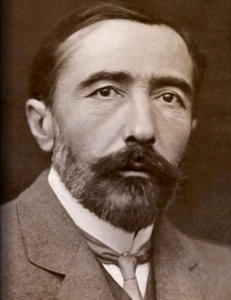 Cracow is the town where I spent with my father the last eighteen months of his life. It was in that old royal and academical city that I ceased to be a child, became a boy, had known the friendships, the admirations, the thoughts and the indignations of that age. It was within those historical walls that I began to understand things, form affections, lay up a store of memories and a fund of sensations with which I was to break violently by throwing myself into an unrelated existence.
Cracow is the town where I spent with my father the last eighteen months of his life. It was in that old royal and academical city that I ceased to be a child, became a boy, had known the friendships, the admirations, the thoughts and the indignations of that age. It was within those historical walls that I began to understand things, form affections, lay up a store of memories and a fund of sensations with which I was to break violently by throwing myself into an unrelated existence.
That afternoon I went to the University, taking with me my eldest son. The attention of that young Englishman was mainly attracted by some relics of Copernicus in a glass case. In the range of the deserted vaulted rooms lined with books, full of august memories, and in the passionless silence of all this enshrined wisdom, we walked here and there talking of the past, the great historical past in which lived the inextinguishable spark of national life; and all around us the centuries-old buildings lay still and empty, composing themselves to rest after a year of work on the minds of another generation.
I cannot reproduce the atmosphere of that night, the first night after mobilisation. The shops and the gateways of the houses were of course closed, but all through the dark hours the town hummed with voices; the echoes of distant shouts entered the open windows of our bedroom. Groups of men talking noisily walked in the middle of the roadway escorted by distressed women: men of all callings and of all classes going to report themselves at the fortress. Now and then a military car tooting furiously would whisk through the streets empty of wheeled traffic, like an intensely black shadow under the great flood of electric lights on the grey pavement.
